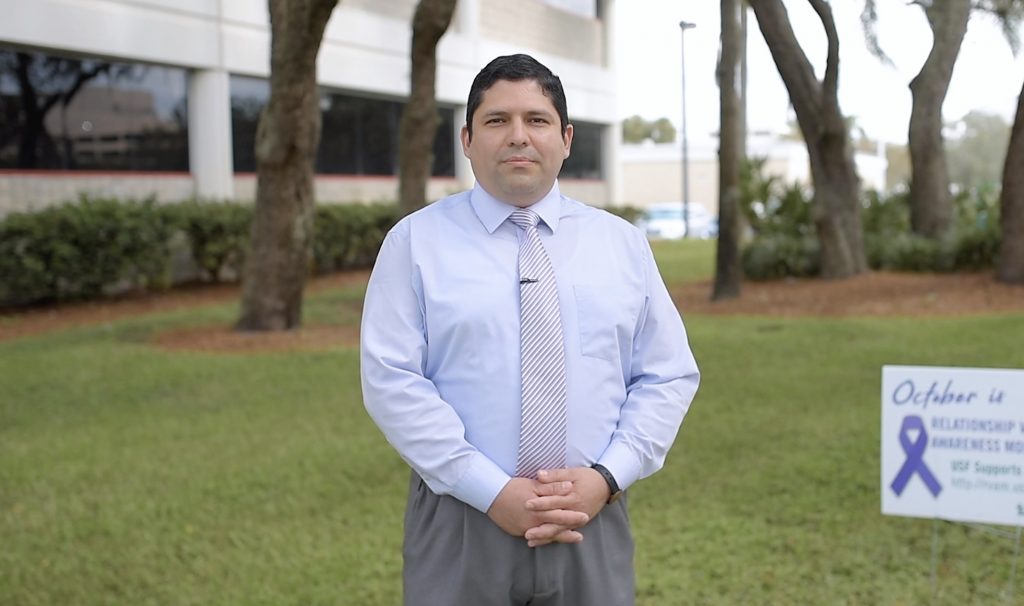Dr. Abraham Salinas-Miranda named director of the COPH’s Harrell Center
Calling it “a dream come true,” Dr. Abraham Salinas-Miranda has been appointed director of the USF College of Public Health’s (COPH) Harrell Center, whose mission is to develop and integrate knowledge with best practices to strengthen community responses to family violence.

Salinas-Miranda, a medical doctor trained in Nicaragua who came to the COPH as Fulbright Scholar and earned both his MPH and PhD from the COPH, has been at the center since 2015, serving in a variety of capacities.
“I like that I can combine my research and clinical expertise with the work of local community agencies addressing multiple forms of family violence—for example, intimate partner violence, child neglect and abuse and elder mistreatment—with other, overlapping forms of violence, such as sexual and gun violence,” said Salinas-Miranda. “The unique way the Harrell Center does this is by actively participating, collaborating and co-learning with the community. I appreciate that it’s not just passive transmission of information about best practices. It’s a co-learning process.”
Salinas-Miranda says his interest in the study of family violence was inspired by community and academic mentors (in medicine and public health), and especially by the mentorship of the Harrell Center’s former director, Dr. Martha Coulter.
“She guided me on the value of community partnerships for addressing domestic violence, the importance of being present for community organizations and survivors, and how university faculty (and students) can make a significant difference serving in their roles as educators and researchers,” said Salinas-Miranda.
Some of Salinas-Miranda’s immediate plans for the future of the Harrell Center include:
- adding to its senior faculty, drawing upon the many professors and researchers at the COPH, USF Health and other USF colleges studying violence-related topics
- pursuing cutting-edge research on the intersection of adverse childhood experiences with intimate partner violence perpetration and victimization
- obtaining collaborative grants
- developing fundraising strategies for community-engagement projects
According to Salinas-Miranda, violence is one of the greatest public health challenges of our time and to stir sociocultural change, policy makers have to work in tandem with communities.
“Violence is behind so many public health issues—obesity, depression, unwanted pregnancy, suicides, substance abuse and more—that we are trying to eliminate. We as humans are relational beings. We depend on our relationships to develop and adapt. Growing up in violent and abusive environments sets patterns of beliefs and behavior that are transmitted to future generations and increases our vulnerability to health issues.”
Story by Donna Campisano, USF College of Public Health
